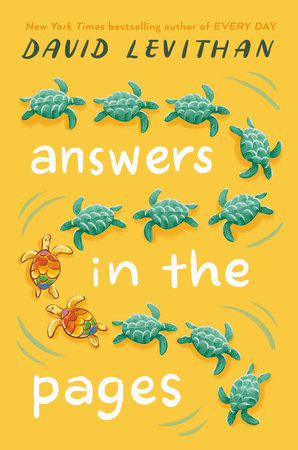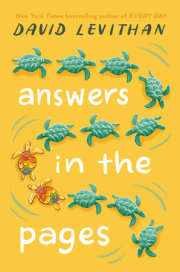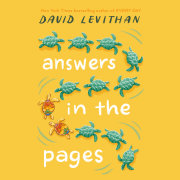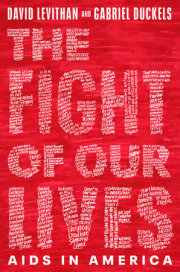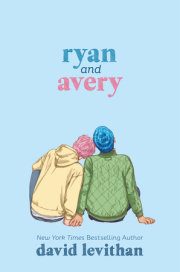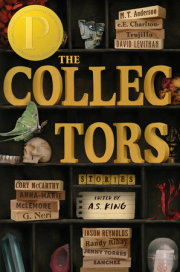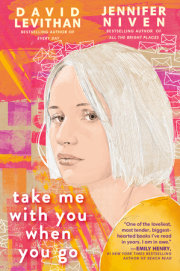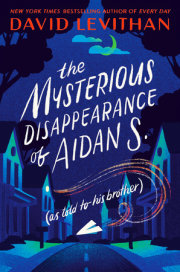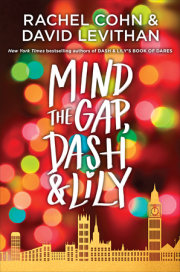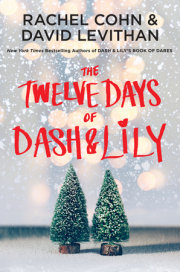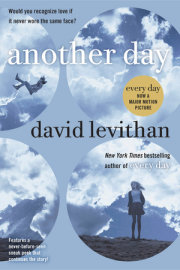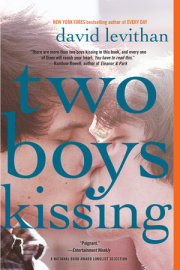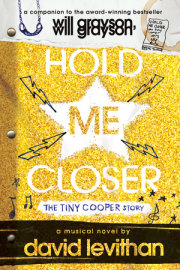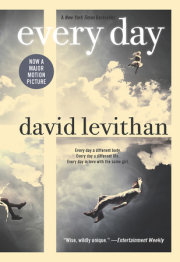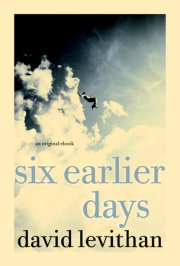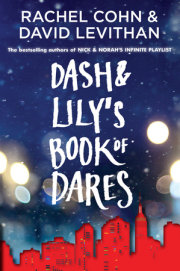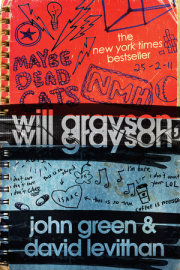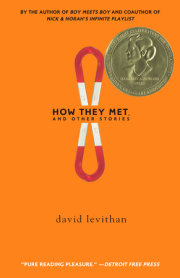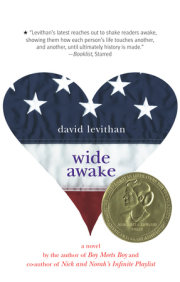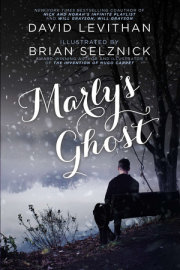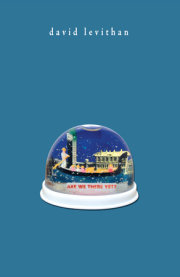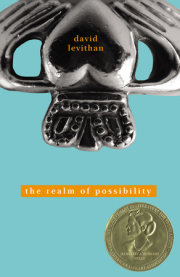1
In the end, after everything they’d been through, there was only one thing the residents of Sandpiper Township could agree upon: that all the fighting, all the commotion, all the rallying came down to how a person chose to read a single sentence.
The sentence in question was:
At that moment Rick knew just how deeply he loved Oliver, and Oliver knew just how deeply he loved Rick, and the understanding of this moment would lead them to much of the happiness and adventure that came next.
As sentences go, it was a bit long, and you had to read an entire book in order to get to it. Many of the residents of Sandpiper Township wouldn’t have noticed it if it had been said during a TV show or appeared as a quote in the middle of a newspaper article. But because it was the last line of The Adventurers, and because The Adventurers had been assigned in Mr. Howe’s fifth-grade class, people did take notice. Only one person at first, then considerably more.
It’s worth reading the sentence again before I begin to tell you what happened.
At that moment Rick knew just how deeply he loved Oliver, and Oliver knew just how deeply he loved Rick, and the understanding of this moment would lead them to much of the happiness and adventure that came next.
It would be a good idea for you to stop and consider what you think about this sentence. This will be the last time you get to read it without other people telling you what they think about it.
That’s how it was in Sandpiper Township that November. I know this because I was one of the first people in Sandpiper Township besides Mr. Howe to read the sentence. Unfortunately, I didn’t read it as soon as I could have. I brought the book home with me and only read the first few pages. Then I left it on the kitchen counter and went to eat a snack in front of the TV.
From there, it only took an hour for my life to spiral out of control.
one
Gideon White was only really, really good at two things: playing with words and collecting turtles. Of the turtles, only one of them, Samson, was an actual living, breathing (*as much as turtles could be seen breathing) turtle. All the others were glass turtles or stone turtles or plastic turtles he’d gathered from gift shops, toy stores, and craft fairs.
As for the words Gideon played with--most of them were living and breathing too, but Gideon often felt he was the only person who noticed this.
Right now, it was Gideon’s job to feed the only living, breathing turtle in his room and to dust all the others. Gideon’s mother claimed to be allergic to dust, which Gideon thought was an exaggeration, since dust was everywhere and if she were truly allergic to dust she’d be coughing or sneezing or wheezing every second of every day. Instead, all she really did was complain about the dust, even when it wasn’t there.
Samson was not Gideon’s best friend, but he was definitely the friend Gideon trusted most. A lot of this had to do with the fact that Samson was a turtle and couldn’t talk. Gideon’s other two best friends, Joelle and Tucker, talked all the time. He couldn’t tell Joelle anything without Tucker finding out about it, and vice versa. Which saved Gideon some time, not having to explain things twice. But it was still annoying that he had to assume anything he said would echo beyond where it was meant to go.
Joelle and Tucker were both in Ms. June’s fifth-grade class. The alphabet had allowed them to sit next to each other while Gideon was banished to the back row. When Debbie Weiss had left class because her father got a job in Arizona, Gideon thought he’d at least be able to move up a row, which would have gotten him one desk closer to Tucker. But instead Ms. June kept the space empty. Gideon didn’t ask her why. He didn’t ask Ms. June anything, if he could avoid it.
Gideon spent most of his time in class finding new words within the ones Ms. June wrote on the board. So if she wrote history homework, he would scramble up its letters to find phrases like my stork or Who is more Thor? or He took my sow! He might even try to turn multiple words into one simpler word, like histomework. He’d do all of this in his head because early in the year he’d tried writing it all down and Ms. June had caught him doing it and instead of thinking he was doing something smart, she treated him like he was doing something wrong. That had put an end to writing it down.
Gideon was lost finding words in Benedict Arnold’s name (red coat, need cab, tied boar) when he felt the room around him pause, which meant he needed to pay attention. He raised his head and saw a boy standing next to Debbie Weiss’s old desk. The boy had shaggy hair and a bright green shirt, and looked at Gideon for a second before sitting down. Gideon had no idea who this boy was, and from looking around he realized that Ms. June had just introduced him to the class, and Gideon had missed it entirely.
For the next half hour, Gideon stared at the back of the boy’s head and tried to figure out his last name. Since Dana Wachtel was sitting in front of the boy, Gideon assumed the last name had to be alphabetically located somewhere between Wachtel and White.
Warner.
Watson.
Webster.
Weeble.
Westing.
Wheelmaker.
Whippoorwill.
Gideon tried to sneak a look inside the boy’s book bag, to see if there was a name on anything in there. But it was zipped closed.
The boy was sitting up straight. Paying attention to Ms. June.
Or maybe just appearing to pay attention. Because Gideon could see the top right corner of the boy’s notebook. He watched as the boy drew a cat. Then a bull. Then a rabbit. Then . . . a turtle.
Gideon wanted to warn the boy to hide the notebook from Ms. June if he didn’t want to get in trouble. But he also really liked the turtle and didn’t want the boy to turn the page.
When it was time for lunch, the boy shuffled his notebook into his bag and jumped out of the room as soon as he could. Gideon started packing up his own books and saw something on the board he hadn’t noticed before.
A new name.
Not someone from the Revolutionary War, like Benedict Arnold.
No. It had to be the boy’s name.
Roberto Garcia.
Chapter One:
Up in Smoke!
Rick Mason knew he had about five minutes left to live . . . if he was lucky.
There was something about being handcuffed to a chair in the heart of an abandoned building about to be set on fire that forced him to focus. It didn’t matter that Rick was only twelve years old--his mind often felt much older than that, and at this moment it only had one purpose: to get him out of that house.
It had been a mistake to come to the mansion alone, and an even greater mistake to let his guard down for even a second. Of course McAllister had sent his bodyguards to do the dirty work. By the time Rick had heard the telltale lunge of boots, the crowbar was already swinging toward his head. They could have done away with him then . . . but clearly McAllister wanted Rick to experience a more elaborate death than a simple pummeling. Rick was starting to smell the smoke now. This wasn’t the time to dwell on mistakes.
First step: Break the chair.
Rick tipped forward on his feet, then flipped himself into the air. When he landed, he made sure to lean all his weight onto the chair’s wooden frame. The first fall weakened it. The second fall cracked it. The third fall broke it. Rick’s spine also felt like it might scatter onto the floor, but Rick clenched his teeth and kept going. The sound of fire from the ground floor was beginning to roar now, and the smoke was getting heavy. Rick swiped his cuffed hands on the floor and was relieved when they came up without any gasoline on them. McAllister wanted this to look like a natural death. It bought Rick a little time.
The cuffs would have to stay on for now. He pulled his shirt over his nose and mouth, then dropped low, pushing forward to the staircase.
Unfortunately, the fire had gotten there first, and was now climbing its way to him.
This left the windows. At the top of the stairway was a stained-glass casement with a saint in the middle. Saint Christopher, Rick thought, even though Saint Christopher really wasn’t McAllister’s type. Like many Adventurers, Rick had a great respect for art. In this case, it meant he whispered a quick apology to the glassmakers before crashing through their creation.
Rick was relieved to find the mansion’s front overhang waiting underneath the shattered window.
He was not relieved when he noticed that people were shooting at him.
And the front porch was on fire.
The smoke gave him some cover, but it also meant that the place where he was standing was likely to cave in, in about five . . . four . . . three . . . two . . .
Rick ran around a corner and leapt in the direction of the tree line. Had it been winter, he would’ve landed on ice-hard ground. But it was still enough of autumn for there to be leaves to soften his plunge. With shots inconsiderately pinging off the tree trunks to his left and his right, he zipped deep into the forest, only catching his breath when he heard the sound of a fire brigade making its way onto the property.
Awkwardly (because of the handcuffs) he checked his pocket watch. It was twenty strokes short of six. He had to keep moving. Not just because McAllister’s goons would be on his tail in the time it took to lick a lollipop, but because he prided himself on never missing a rendezvous. McAllister might manage to kill Rick Mason, but he would not make him late.
Nineteen minutes later, Rick approached the back of a Texaco station, relieved that none of the attendants had chosen this moment for a coffee break. Two minutes later, a motorcycle swerved to his side.
Rick knew better than to say a word until Oliver removed his helmet.
Once it was off and Rick could see Oliver’s smile as well as his smiling eyes, he chided, “You’re late.”
Oliver took this in stride. “You didn’t tell me you were leaving. Didn’t even leave a note on your bed.” He registered Rick’s situation. “And you definitely didn’t tell me to fetch the bolt cutter.”
“Mistakes were made,” Rick mumbled as Oliver handed him a helmet.
“But I knew to come here anyway,” Oliver said, neither annoyed nor surprised. They both put on their helmets.
Rick hopped onto the seat behind Oliver. Then, because there was no other way to do it, he brought his cuffed arms around Oliver’s head and got them around his waist.
“Hold on,” Oliver said, gunning the motor.
Rick knew there’d be enough time to figure out what had gone wrong. Right now, he was grateful that this one thing had gone right. Rick Mason was an orphan, but that didn’t mean he lived a life bereft of family. Part of being an Adventurer was knowing the other Adventurers had your back. Or, in this case, would give you his own back to hang on to as you zoomed your way to safety.
2
My mom came and stood in front of the TV.
“What is this?” she said, holding out the book I’d left on the counter.
“A book for school. I’ll start reading it later.”
I figured I was in trouble for choosing TV over a book. So I was definitely surprised when my mom said, “I’m not so sure about that, Donovan.”
I honestly thought I’d misheard her. This couldn’t possibly be my mother, telling me not to read.
She went on, though, asking me, “How far have you gotten?”
“We read the beginning in class.”
“Which class?”
“Um . . . English. I mean, language arts. Which is the same thing as English.”
I thought, okay, she must have started reading it, and probably felt it was too violent for fifth graders. Or maybe it was too fun. I could see her objecting to that. Sometimes Mr. Howe made us read these old classics that had cobwebs between each of the sentences, but other times he’d have us read a more recent book, even one that didn’t have any shiny award seals on the cover. With this book, he’d said we were starting an adventure unit, and what better place to start an adventure unit than with a book called The Adventurers?
“I would like to read some more of it, and would like to understand some things about the author before you continue,” my mother told me now.
She almost made it sound like she was asking my permission.
She was definitely not asking my permission.
I figured, I guess I’ll just go back to watching TV. But instead she turned off the TV and told me to do the rest of my homework. She actually said, “Go do your math homework.” Because maybe she figured that was the opposite of language arts.
I went to my room . . . but I kept the door open so I could hear her getting on the phone, calling some of my friends’ moms, the ones she was friends with. Like Sean’s mom. And Tarah’s mom. But not Allison’s mom. I couldn’t hear what she was saying, exactly, but I could hear the names Rick and Oliver coming up a lot. From the chapter Mr. Howe had read to us, I remembered those were the names of the characters from the book. I expected to hear my mom talking about the bullets flying and the fact that two twelve-year-olds were clearly driving a motorcycle without a license. (At least they wore helmets. I definitely would have understood her screaming if they hadn’t worn helmets.)
But that wasn’t what she was angry about.
The thing is, my mom doesn’t read books like I read books. I like to be surprised, so I try to avoid even the summary on the back. My mom, though, doesn’t like to be surprised. So she’ll read a few pages at the start, to get a sense of what the book is about, and then she’ll read the last page, so she knows where it’s going. If she’s happy with that, she’ll return to the beginning and keep reading.
Copyright © 2022 by David Levithan. All rights reserved. No part of this excerpt may be reproduced or reprinted without permission in writing from the publisher.

